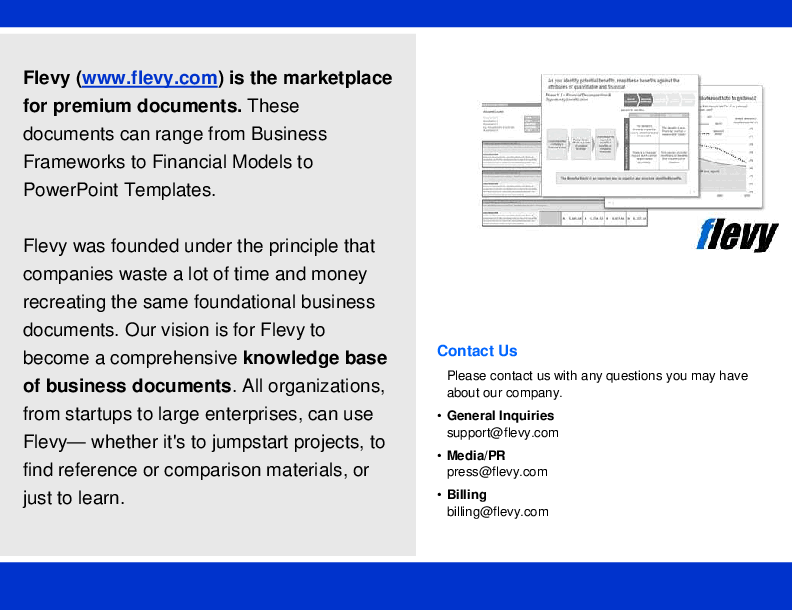Architecture Capability Maturity Model ACMM (PowerPoint PPTX Slide Deck)
PowerPoint (PPTX) 9 Slides
BENEFITS OF THIS POWERPOINT DOCUMENT
- assessment and advancement of Architecture Maturity
- Provides Architecture Capability improvements steps
- Assists with Enterprise Architecture Business Cases
MATURITY MODEL PPT DESCRIPTION
ACMM categorises and defines the possible levels of architectural capability and is based on the experiences of a very diverse range of organisations and market sectors over a number of years.
Each level shown in the ACMM is defined in terms of the key attributes which are generally associated with that level.
The ACMM can be applied, if needed, in more detail to specific architecture areas, eg. As-Is/Asset knowledge, Architecture Design, Governance, Architecture Process, Architecture Management, Relationship Management, Communication, IT Investment/Approval, Enterprise Architecture
Got a question about the product? Email us at support@flevy.com or ask the author directly by using the "Ask the Author a Question" form. If you cannot view the preview above this document description, go here to view the large preview instead.
Source: Best Practices in Maturity Model, CMMI, Business Capability Model PowerPoint Slides: Architecture Capability Maturity Model ACMM PowerPoint (PPTX) Presentation Slide Deck, R Bradley Consulting






